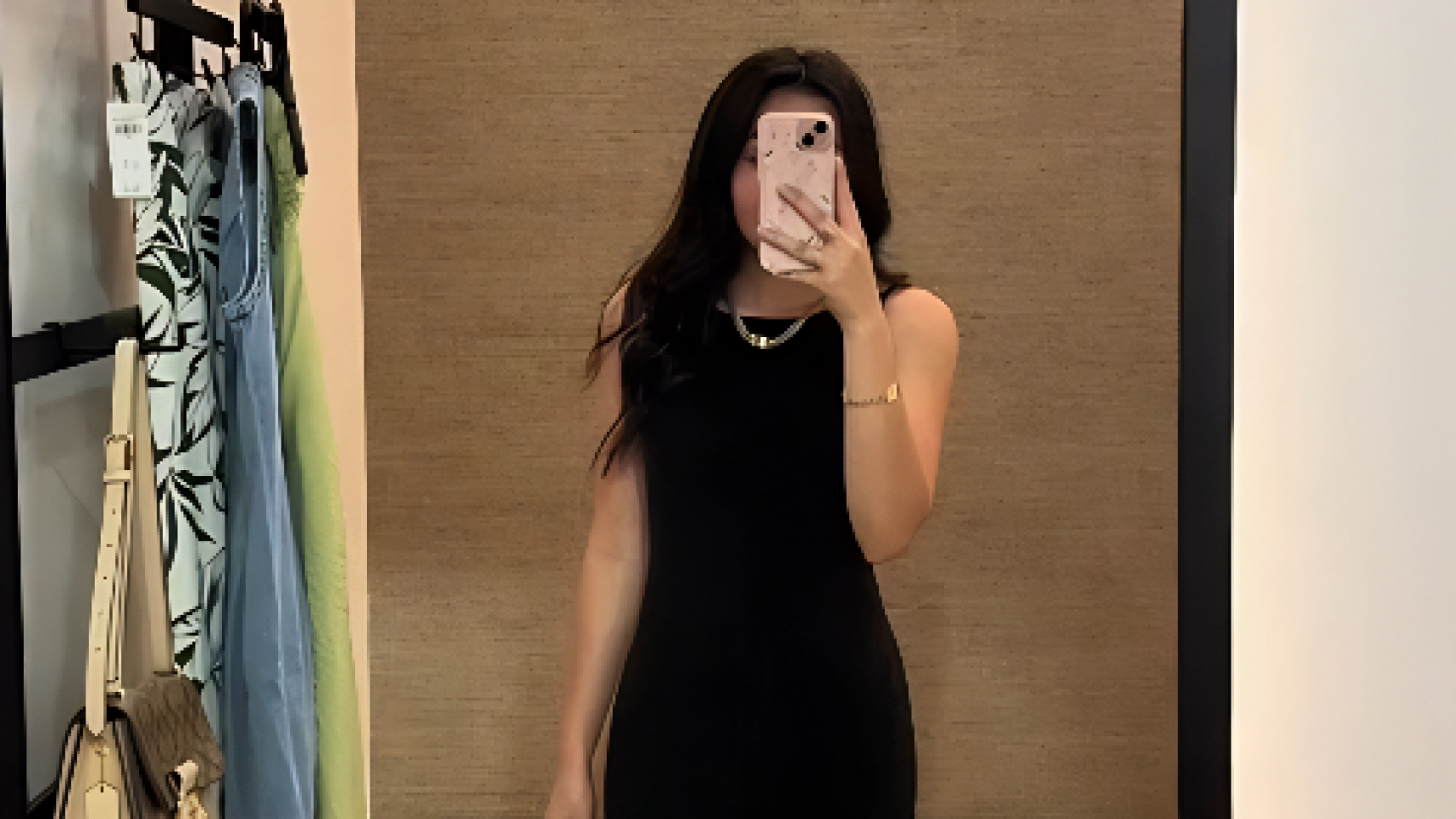


Saturday, 11 a.m., Madrid. I enter one of the most popular shopping streets for fashion experts (in the coveted Salamanca neighborhood), opting for one of my reference stores.
I choose a dress from the new collection, with puffed sleeves, a pair of straight pants and some sneakers, from the previous season. Unable to check out before approving the clothes in front of the mirror, I pull the curtain of one of the fitting rooms, hoping to experience a real crush in this small beige and circular cubicle, tastefully decorated.
After placing the clothes on the rack, I feel a sense of urgency, aware of the line of people waiting outside. The next step fails to calm me down: after undressing, my reflection is surprisingly strange.

The test of the first garment is not conclusive, neither is the second, I prefer the shoes, which in addition to having an affordable price, are especially flattering. My mistake when choosing the correct size It discourages me from looking for other options. I’ll come back another day. Or I will buy the right one online, assuming the ‘risk’ of a new failure.
Overwhelmed by the intense heat, ambient noise and brightness, I don’t stop too much. I draw the curtain and return to the undoubtedly more welcoming space of the store. Reflection is inevitable: Is it me, the lights or a wrong perception of myself? The experience is not isolated and creates a certain discomfort that, precisely, brands try to avoid. It turns out that this ‘bad time’ in the fitting room It’s not just my thing.

Respondents claim to experience emotions such as insecurity. istock
The data corroborates it. Zalando, one of the platforms on-line European leader in fashion and lifestyle, has partnered with YouGov to understand consumer emotions related to fashion purchases both on the web and in stores and how their experiences influence consumer habits. 14,609 adults from different European countries, including Spain, participated in the survey carried out.
The result is unequivocal: respondents claim to experience emotions such as insecurity (19%), frustration (19%) and disappointment (16%) when trying on clothes in a store, according to data accumulated throughout Europe.
“Dissatisfaction when making purchases in physical stores has real consequences for the retailsince 36% of adults affirm that a negative shopping experience would stop them, a figure that reaches 40% in Spain,” explains the platform.
Furthermore, “48% of adults in Spain affirm that your mental health is affected negatively when clothes do not fit well, and almost a fifth (19%) of the buyers surveyed feel affected always or most of the time,” he emphasizes.
In Spain, lack of space (53%), bad odors (27%) and feeling of hurry (26%) are some of the most mentioned causes of discomfort. But it is not a specifically Spanish problem.: these are repeated in all markets. In fact, it has given rise to a phenomenon known as fitting room anxiety.
Even so, not all countries agree: while 29% of those surveyed in Spain say they enjoy their experience in the fitting rooms, only 9% in Denmark think the same. On the other hand, 26% of those in Sweden say they feel frustrated, compared to only 12% in France.
Those from Spain (30%), Germany (37%) and the United Kingdom (39%) highlight privacy as a key factor and prefer to try on clothes at home. These figures are significantly higher than the average (29%) of all the countries analyzed.
A psychological foundation
But why can this experience be so frustrating? Silvia dal Ben, psychologist and clinical manager of Unobravo remember, first, that “in the psychological literature there is no clear talk of a specific anxiety of the tester, however, the impact of mirrors on self-image and self-esteem has been widely studied.
“Studies show that looking in the mirror can intensify both self-consciousness and body insecurities. In people with a distorted body image or self-esteem difficulty, such as body dysmorphia, mirrors can act as triggers for anxiety states or stress,” explains the expert.

So-called ‘fitting room anxiety’ could arise for many reasons. istock
Its appearance does not have a single answer: “So-called ‘tester anxiety’ could arise for many reasons. Some people may perceive it as a testing place where they must meet (or not) their own expectations. Lighting, mirrors and the environment can intensify insecurities about physical appearance, which triggers that anxiety,” says the expert.
“In addition, they may feel pressure to conform to certain standards of beauty and body image. In this context, the mirror can become in your worst enemy“he adds.
To what extent can it affect us psychologically? Is it dangerous for our mental health? The expert highlights that this anxiety is not unanimous. In any case, it is advisable to face it: “From a psychological point of view, the tester itself is not dangerous for our mental health; We can see it as a stimulus of the reality that we can face. For some people, it is neutral, while for others it can feel like a difficult test in their life. Although it is not essential for survival and can be avoided, facing it can be an opportunity for those who feel anxiety or fear in that situation. “It’s possible to find out what makes him so threatening.”
“Like many anxiety-producing stimuli, it is possible that if not faced, can interfere with daily routine. This may be a sign that our mind needs listening and attention, and perhaps even help from a professional. “Who better than a psychologist to help us understand what our mind fears?” he adds.
The expert invites us, in this sense, to deepen our reflection: “First of all, I must understand what the fitting room means to me. I work in a store and see it every day? Do I procrastinate buying my wedding dress to avoid getting into one? “I’m on a diet and it’s going to be the place where I see the results of my efforts?”
“In these three examples, the tester can represent different anxiety stimulidepending on the context of each person. Once I understand what it means to me, I can decide whether to face it, avoid it, or ask someone to come with me. Also It is valid to seek psychological help and talk about the issue with a professional, such as a psychologist,” he concludes, recalling the importance of having an expert opinion, especially in cases of overflow.
